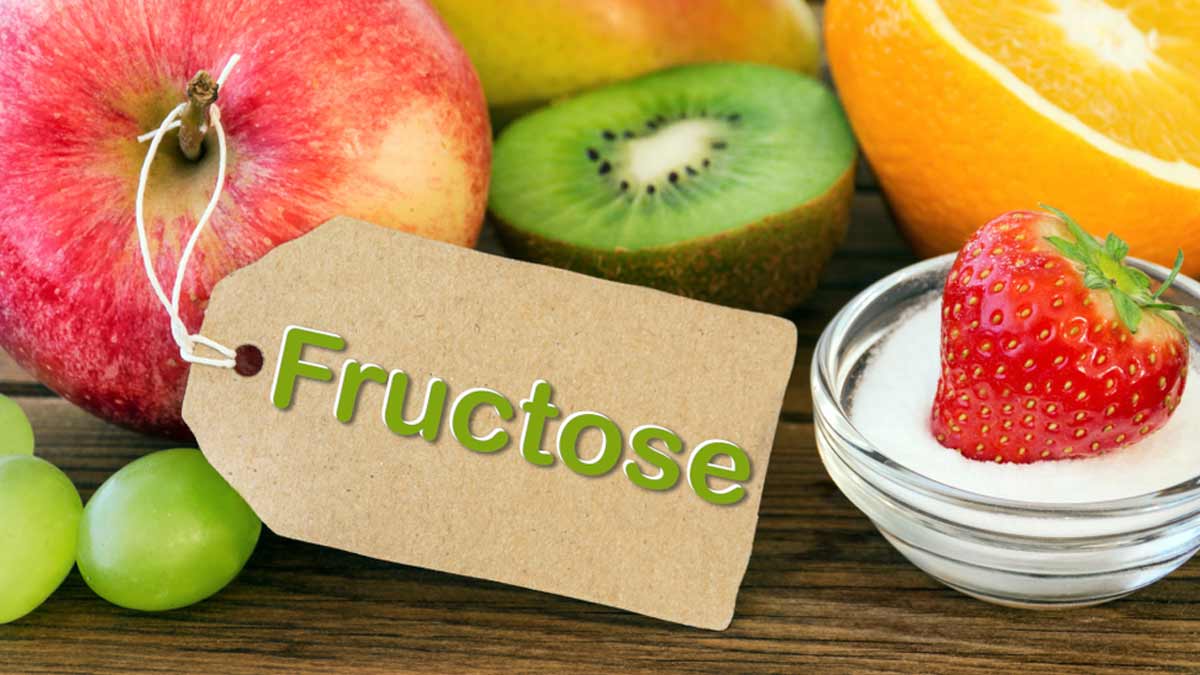
Have you ever experienced bloating, gas, and abdominal pain after eating foods containing fructose? If so, you might be dealing with fructose intolerance, a condition where the body has difficulty digesting this common sugar found in many fruits, vegetables, and sweeteners. Managing fructose intolerance can feel overwhelming, but adding some natural remedies and making a few dietary adjustments can provide significant relief. In this article, we list eight effective ways to soothe your gut and alleviate symptoms, helping you feel more comfortable and in control of your digestive health.
Table of Content:-
Natural Ways To Soothe Your Gut Due To Fructose Intolerance
1. Follow a Low-Fructose Diet

The most critical step in managing fructose intolerance is to follow a low-fructose diet. This involves identifying and avoiding foods high in fructose, such as apples, honey, high-fructose corn syrup, and certain vegetables like asparagus and peas. Instead, opt for low-fructose alternatives like berries, citrus fruits, and leafy greens. Reading food labels and understanding which foods are safe can help prevent symptoms.
2. Increase Fibre Intake
While fibre is crucial for digestive health, some types can worsen fructose intolerance symptoms. Soluble fibre, found in foods like oats, bananas, and carrots, is easier on the gut and can help keep things moving smoothly. By eating more soluble fibre, you can soothe your gut and ease the symptoms of fructose intolerance.
Also Read: When Is The Best Time To Check Blood Sugar Level If You Have Diabetes?
3. Stay Hydrated

Do not underestimate the importance of staying hydrated to promote your digestive health. Drinking plenty of water helps dilute fructose in the digestive tract, making it easier for your body to process. Aim to drink at least eight glasses of water a day and avoid sugary drinks and sodas, which can worsen symptoms.
4. Try Digestive Enzymes
Digestive enzymes, particularly those containing xylose isomerase, can help break down fructose in the gut, reducing symptoms of fructose intolerance. According to a 2016 study, digestive enzymes can break down proteins, carbohydrates, and lipids, and supplementing with them may help manage digestive disorders like lactose intolerance.
5. Peppermint Oil

You can even use peppermint oil to soothe your digestive system. This oil can help reduce bloating, gas, and abdominal pain associated with fructose intolerance. You can take peppermint oil capsules or drink peppermint tea to relieve symptoms. Always ensure that the peppermint oil capsules are enteric-coated to prevent heartburn.
6. Ginger
Ginger is a well-known natural remedy for its digestive benefits. It can help reduce nausea, improve digestion, and alleviate abdominal discomfort. You can add ginger to your diet by drinking ginger tea, adding fresh ginger to your meals, or taking ginger supplements. A warm cup of ginger tea after meals can be particularly soothing.
Also Read: Fenugreek Seeds For Blood Sugar Management: Expert Lists Different Ways To Consume It
7. Probiotics
You should include probiotics, the beneficial bacteria, to support a healthy gut microbiome. They can help improve digestion and reduce symptoms of fructose intolerance by enhancing gut health. Foods rich in probiotics include yoghurt, kefir, sauerkraut, and other fermented foods. You can also take probiotic supplements, but choose a high-quality product with multiple strains of beneficial bacteria.
8. Chamomile Tea

If you are looking for a beverage to soothe your gut, do not miss the digestive benefits of chamomile tea. It can help reduce inflammation, soothe the gut, and relieve symptoms like gas and bloating. Drinking a cup of chamomile tea before bed or after meals can help promote digestive comfort.
Additional Tips for Managing Fructose Intolerance
- Eat Smaller Meals: Consuming smaller, more frequent meals can help reduce the load on your digestive system and prevent symptoms.
- Chew Food Thoroughly: Chewing food thoroughly aids digestion and can help reduce symptoms of fructose intolerance.
- Keep a Food Diary: Tracking what you eat and your symptoms can help identify trigger foods and patterns, making it easier to manage your condition.
[Disclaimer: This article contains information for informational purposes only. Hence, we advise you to consult your own professional if you are dealing with any health issues to avoid complications.]
Also watch this video
How we keep this article up to date:
We work with experts and keep a close eye on the latest in health and wellness. Whenever there is a new research or helpful information, we update our articles with accurate and useful advice.
Current Version